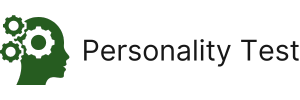My Personality Type Test: Which Quiz Is Right for You?

Take Personality Quiz Online for Free
Test YourselfIn our quest for self-understanding, personality tests offer valuable insights into our behaviors, preferences, and tendencies. Whether you're seeking clarity in your career path, better relationships, or simply deeper self-awareness, the right personality assessment can be illuminating. But with dozens of tests available, how do you choose the one that best serves your needs? This guide explores the most popular personality tests, what they measure, and how to select the ideal assessment for your personal goals.
Popular Personality Tests and Their Foundations
Myers-Briggs Type Indicator (MBTI)
Based on Carl Jung's theory of psychological types, the MBTI categorizes people into 16 distinct personality types based on four dichotomies: Extraversion/Introversion, Sensing/Intuition, Thinking/Feeling, and Judging/Perceiving. While widely used in workplace settings and personal development, it's worth noting that the scientific community has mixed views on its reliability and validity. Nevertheless, many find its insights about communication styles and information processing helpful in understanding themselves and others.
Enneagram
The Enneagram identifies nine interconnected personality types, each driven by different core motivations and fears. Unlike many other assessments, the Enneagram focuses on the why behind behavior rather than just the what. It offers profound insights into your fundamental motivations and the unconscious patterns that may be limiting your growth. The system also explores how personalities shift under stress or security, making it particularly valuable for personal development work.
Big Five (Five-Factor Model)
The Big Five is arguably the most scientifically validated personality model, measuring traits along five dimensions: Openness, Conscientiousness, Extraversion, Agreeableness, and Neuroticism (sometimes remembered by the acronym OCEAN). Rather than categorizing you into fixed types, it places you on a spectrum for each trait. This nuanced approach makes it especially valuable for academic research and situations where scientific rigor is important.
DiSC Assessment
The DiSC model measures four primary behavioral styles: Dominance, Influence, Steadiness, and Conscientiousness. Straightforward and accessible, DiSC is frequently used in professional settings to improve teamwork, communication, and leadership development. Its simplicity makes it particularly useful for workplace applications where immediate practical insights are valued.
StrengthsFinder (CliftonStrengths)
Unlike tests that may highlight weaknesses, StrengthsFinder identifies your top natural talents from 34 possible themes. Developed by Gallup, this assessment focuses on leveraging your innate strengths rather than fixing weaknesses. It's especially valuable for career development, as it helps align your work with your natural abilities and inclinations.
Choosing the Right Test for Your Goals
When selecting a personality test, consider what you hope to achieve. Different assessments serve different purposes:
- For career guidance: StrengthsFinder or Holland Code (RIASEC) tests directly connect personality traits to career satisfaction and success.
- For relationship insights: The Enneagram excels at revealing interpersonal dynamics and patterns, while MBTI can help understand communication preferences.
- For team building: DiSC and MBTI are widely used in professional settings to improve team cohesion and communication.
- For comprehensive self-awareness: Consider taking multiple tests. The Enneagram reveals motivations, the Big Five offers scientific validity, and MBTI provides insights into information processing and decision-making.
- For therapeutic contexts: The Enneagram often resonates with those in therapy due to its focus on core wounds and growth paths.
Comparing Popular Personality Tests
| Test | Primary Focus | Scientific Validity | Best For | Time Investment |
|---|---|---|---|---|
| MBTI | Preferences & information processing | Moderate | Communication styles, cognitive approaches | 20-30 minutes |
| Enneagram | Core motivations & fears | Low-Moderate | Personal growth, relationship dynamics | 30-45 minutes |
| Big Five | Trait dimensions | High | Research-backed insights, career compatibility | 10-15 minutes |
| DiSC | Behavioral styles | Moderate | Workplace dynamics, team building | 15-20 minutes |
| StrengthsFinder | Natural talents & strengths | Moderate-High | Career development, leveraging innate abilities | 30-40 minutes |
Beyond Labels: Using Personality Tests Wisely
While personality tests offer valuable insights, remember they're tools for reflection rather than rigid boxes. The most valuable approach is to use test results as conversation starters with yourself. Ask: Does this resonate? Where do I see these patterns in my life? How might understanding this aspect of myself create positive change?
To gain maximum benefit from personality assessments:
- Take tests when you're in a neutral mindset, not during extreme emotional states.
- Answer honestly, not how you wish you were or think you should be.
- Consider retaking assessments every few years, as personal growth can shift results.
- Use official versions when possible, as informal online quizzes may lack validity.
- Remember that no test captures your full, complex humanity.
The most powerful outcome of any personality test isn't the label—it's the increased self-awareness and compassion that comes from understanding yourself and others more deeply. When used thoughtfully, these tools can illuminate paths to personal growth, better relationships, and more fulfilling work.
